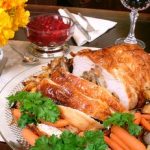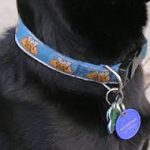Posts from November, 2016
3 Pet Safety Tips For Thanksgiving
1. IDENTIFICATION CHECK. Does your pet have a collar and tags with updated info? If your pet is microchipped, have you updated your contact information in the past year? The holidays bring an increase of pets who will sneak out the door unexpectedly and end up in a shelter. If you have guests visiting your home for the holiday or if you are leaving your pet with a sitter, this is an important step to ensure the safety of your pet.

2. SAFE SPACE. Whether guests are coming to your home or you are traveling with your pet, make sure your pet has a safe space away from the activities. This could be a crate or a guest bedroom. Set up your pet with water, a blanket and a favorite toy to help him/her feel more at ease.
3. FOODS TO AVOID. Many foods that are perfectly safe for humans, can be extremely toxic to pets. It’s best to keep them on their regular diet to prevent any illness. Here are some people foods that should be avoided at all costs:
- Fatty Foods. Meat drippings or scraps even in small amounts can cause a life-threatening condition in pets known as pancreatitis. Pancreatitis is an inflammation of the pancreas that can result in a trip the veterinarian. Clinical symptoms of pancreatitis are vomiting, diarrhea, loss of appetite and abdominal pain.
- Desserts. Most desserts contain chocolate which is well-known by most to be toxic to dogs. Remember the darker the chocolate, the more serious the ingestion. Many desserts and candies may also contain an artificial sweetener called xylitol. This is dangerous to pets. It can cause a rapid drop in blood sugar along with liver damage.
- Raisins/Grapes. These can be found in some of our Thanksgiving favorites and can cause acute renal failure even in small amounts.
- Bones. Turkey or ham bones can cause obstructions if eaten, as well as, can make your pet’s tummy upset. It’s best to get a pet- safe bone or goodie for them to enjoy for the holiday.

